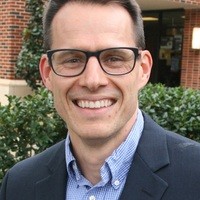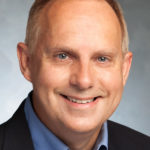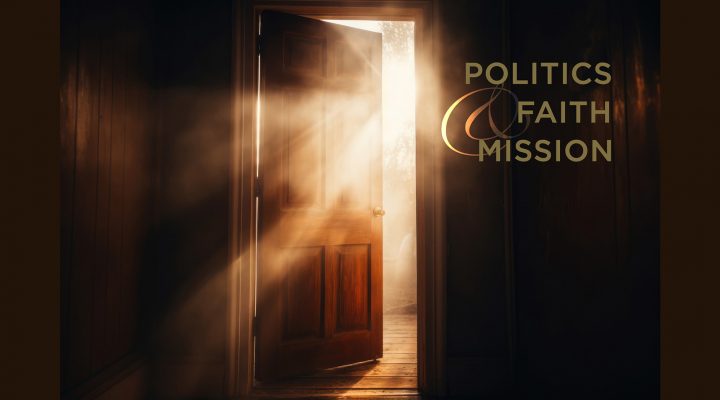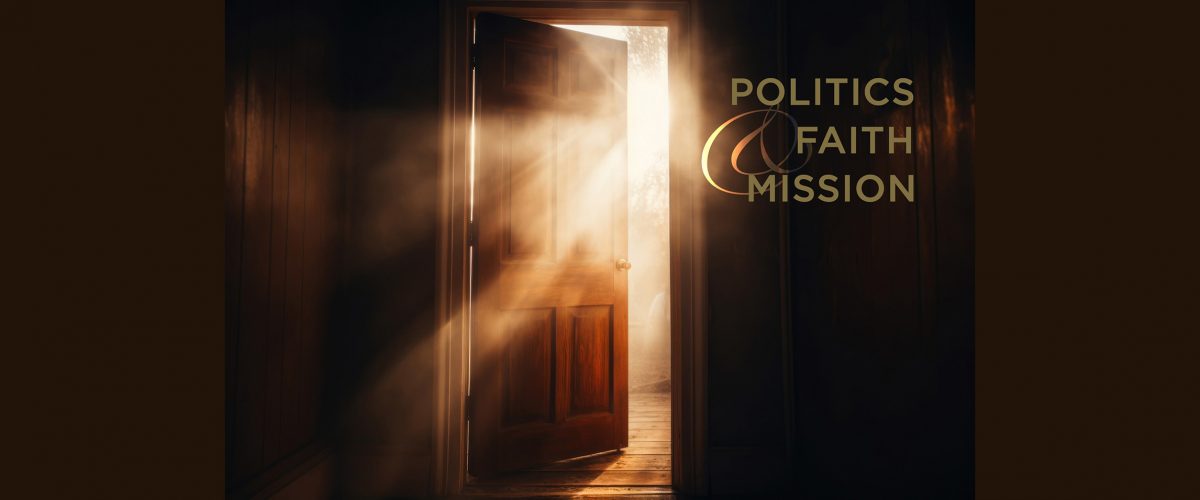Samuel Perry is the Sam K. Viersen Presidential Professor at the University of Oklahoma and a leading interpreter of conservative Christianity and American politics, race, families and sexual behavior. I rely on his research from his placement as sociologist and cultural critic. His most recent books are Taking America Back for God (with Andrew Whitehead), The Flag and the Cross (with Philip Gorski), and the upcoming Religion for Realists: Why We All Need the Scientific Study of Religion. I am so grateful to Sam for this conversation.
Greg Garrett: It feels like as part of the culture wars there is so much divisive discourse about masculinity, femininity and sexual roles. What are you observing about what evangelicals are doing and saying about these issues, and what are your concerns around it?
Samuel Perry: There’s a bit of a disconnect between the evangelical voices you see on social media or in the press and the evangelicals we see on national surveys. For example, evangelicals in general are more patriarchal than other Americans. But just like all other Americans, they have gradually become more egalitarian in their gender views over time.

Samuel Perry
If you look at the younger cohorts of evangelicals, they’re also growing more accepting of same-sex marriage. For example, in the 2021 and 2022 General Social Surveys, more than half of evangelicals under age 40 believe homosexual individuals should have a right to marry. Sure, that’s less than everyone else, but it’s still more than half, and it’s grown over time.
Evangelicals also are following the broader trend in the American public with declining fertility, which also is a gender story. Evangelical women are pursuing education more than they have in the past (like all women) and getting married later and having fewer children.
But if you were to follow the narrative on social media or in the broader partisan media ecosystem, you’d likely get a narrative that’s constructed by the most extreme voices in evangelical leadership. It is those voices that are trying to push evangelicals (or pull them back) toward the far right on issues of gender, family, sexual behavior, etc.
But what this is more likely doing is it’s creating a sorting dynamic where many people who are more moderate-to-left-leaning in evangelical spaces will sort themselves into other churches while folks who are more right-leaning will find themselves more entrenched in the culture war rhetoric of persecution, wokeism, civilizational decline, conspiracy, MAGA and Christian nationalism.
What we need to track is what happens from here on out in public opinion. Are the far-right voices in national evangelical leadership succeeding in redirecting evangelical public opinion and behavior toward the right? Or are they simply driving people away while getting others already in the camp to double-down as their numbers dwindle?
I’m inclined to believe the latter is what will happen, but that’s what we need to observe over the next 10 years.
GG: One of the most fundamental realities that has to be confronted about American evangelicals is their embrace of Donald Trump. How do you account for the fervent support for a serial liar, adulterer and cheat? Are there any possible ways to talk to these American Christians about this choice?
“The Venn diagram of evangelical and Republican is becoming a circle.”
SP: The Americans we identify as “evangelicals” may have followed broader trends and become more progressive on a variety of social issues over the past few decades. But they have not grown more progressive in their own self-identification or partisanship. In fact, we know they’ve increasingly identified with conservatism and Republican partisanship.
To self-identify as an “evangelical” these days is now more than ever to identify oneself with the cultural and political right. The Venn diagram of evangelical and Republican is becoming a circle. Given the fact that Donald Trump is the Republican Party now, evangelicals will always support the party leader. Period.
But there’s something more going on with evangelicals’ Trump support than mere partisan loyalty. Contrary to popular opinion, they are not, nor have they ever really, held their noses and voted for Trump.
Dating back to before the 2016 Republican primary was decided, committed white evangelicals already were bullish on Trump as a presidential candidate relative to other options. And despite their many opportunities now to back another Republican candidate with better evangelical bona fides (Ted Cruz, Ben Carson, Mike Pence, etc.), they have strongly preferred Trump. I believe this comes down to the deep-seated populism within the evangelical subculture.
White evangelicals are more conspiratorial, anti-elite, ethno-nationalistic and pro-“righteous violence” than other Americans, reflecting their populist bent. They like someone who sows conspiracy theories and flouts political correctness.
But most importantly, evangelicals love and venerate leaders and celebrities who identify with them and take their side. Any celebrity football player or musician or actor or public servant who gets “canceled” by the left for taking a stand for culture war issues immediately becomes an evangelical celebrity. And that’s Trump every single day. He’s a barbarian warrior and a martyr all in one, like the biblical Samson.
GG: As part of that conservative movement, I note we are witnessing a powerful emergence of white Christian nationalism. How do you define the term, and why do you feel it is a concern for Americans and for Christians?
SP: It’s important we define our terms here because “Christian nationalism” has made its way into popular vernacular and there’s a real danger it loses meaning and gets used as a slur against all Christians involved in politics. That’s never what we’ve supported or endorsed.
“The ‘Christianity’ of Christian nationalism is cultural, ethno-cultural to be precise.”
Christian nationalism generally is an ideology that idealizes and advocates a fusion of American civic life with a very particular kind of Christianity. That “Christianity” doesn’t refer to someone who subscribes to the doctrines of the Apostles Creed or the Westminster Confession or someone who has asked Jesus to be their Lord and Savior. The “Christianity” of Christian nationalism is cultural, ethno-cultural to be precise.
What Christian nationalism traditionally pines for is a return to traditional Anglo-Protestant supremacy. It is that culture, they believe, that made this country great and prosperous. We must return to that culture, they believe, to keep God’s blessing on our nation.
That requires us expelling or marginalizing those who want to misdirect our country toward secularism, wokeism, Islam, globalism or anything that’s historically been defined over and against the mythical Anglo-Protestant foundations of our nation.
Quite simply, this ideology is a danger to American democracy because we’ve found in study after study (as have other scholars and polling firms like PRRI) that Christian nationalism is associated with anti-democratic, conspiratorial and authoritarian views among the American public. And this is particularly the case when it is held by white Americans.
This is simply because white Americans, when they conflate Christian and American identities, are more inclined toward nostalgia, ethnonationalism and authoritarian populism in a way that doesn’t seem to be the case for historically disadvantaged minorities. Christian nationalism, in other words, clearly means something different for white Americans. And that’s why we often refer to it now as “white Christian nationalism” to make sure we’re clear about what exactly we’re referring to.
There’s another sense in which Christian nationalism is not only an ideology that people embrace, but it is a political strategy political actors can deploy. And they can do this even if they don’t sincerely embrace the ideology. I wouldn’t consider Donald Trump a “true believer” when it comes to Christian nationalism, because I don’t think he’s a “true believer” in anything. But he knows what his audiences want to hear. And he knows if he promises his largely white conservative Christian audience he will restore power and influence to Christians, they rally to that promise. And they’ll overlook all the other flaws if he promises them relevance and power.
GG: You, Robert Jones, Andrew Whitehead and others are doing important research exploring the intersections of religion, race, gender and politics. I’m one of those who benefits from that research, so thank you. What is surprising you about the research you’re doing, and what would you want to highlight for the American people as something you’re seeing that many of us are not?
SP: What surprises most, given how much we’re hearing about “Christian nationalism” these days in the media, is that it’s actually declining in the general population. Andrew and I were pointing this out back in our 2020 book Taking America Back for God, that there doesn’t seem to be an increase in terms of the general public supporting Christian nationalist views.
“When groups understand their own diminishing numbers, it makes them more militant, even radicalized.”
But that doesn’t mean it’s powerless, because political leaders who want to mobilize voters with Christian nationalist rhetoric can continue to score victories for that cause. And when groups understand their own diminishing numbers, it makes them more militant, even radicalized.
So people may be surprised that Christian nationalism is decreasing, but that shouldn’t make people concerned about this ideology any less diligent in confronting it.
GG: I’m asking all my respondents this year where they’re finding joy, hope or grace in the present moment. Is there anything you’re reading, watching or listening to — or is there anything you’re seeing in the larger culture or near to home — that is making you feel better about the world or even making you think that we might just get through all this?
SP: I’m trying to build relationships with people who share different political and cultural views from me and I’m trying to get more involved in local politics. I believe both those activities will help us reduce the polarization that is tearing the country apart.
We need to get off social media more, read less about national political drama and get involved in our neighborhoods and communities. Real politics isn’t about doom-scrolling social media and getting into fights with anonymous trolls for two hours combined with another couple of hours of reading national news. It’s talking to people, getting involved locally. I’m trying to do that and I’m hoping I can convince more Americans to do the same.

Greg Garrett
Greg Garrett teaches creative writing, film, literature and theology classes at Baylor University. He is the author of two dozen books of fiction, nonfiction, memoir and translation, including the critically acclaimed novels Free Bird, Cycling, Shame and The Prodigal. His latest novel is Bastille Day. He is one of America’s leading voices on religion and culture. Two of his recent nonfiction books are In Conversation: Rowan Williams and Greg Garrett and A Long, Long Way: Hollywood’s Unfinished Journey from Racism to Reconciliation. He is a seminary-trained lay preacher in the Episcopal Church. He lives in Austin with his wife, Jeanie, and their two daughters.
More from this series:
Politics, faith and mission: A conversation with Jimi Calhoun
Politics, faith and mission: A conversation with David Dark
Politics, faith and mission: A conversation with Randolph Hollerith
Politics, faith and mission: A conversation with Jillian Mason Shannon
Politics, faith and mission: A conversation with Bishop Mariann Edgar Budde
Politics, faith and mission: A conversation with Vann Newkirk II
Politics, faith and mission: A conversation with Sarah McCammon
Politics, faith and mission: A conversation with Winnie Varghese
Politics, faith and mission: A conversation with Kaitlyn Schiess
Politics, faith and mission: A conversation with Russell Moore
Politics, faith and mission: A BNG interview series on the 2024 election and the Church
Politics, faith and mission: A talk with Tim Alberta on his book and faith journey
Politics, faith and mission: A conversation with Jemar Tisby
Politics, faith and mission: A conversation with Leonard Hamlin Sr.
Politics, faith and mission: A conversation with Ty Seidule
Politics, faith and mission: A conversation with Jessica Wai-Fong Wong


